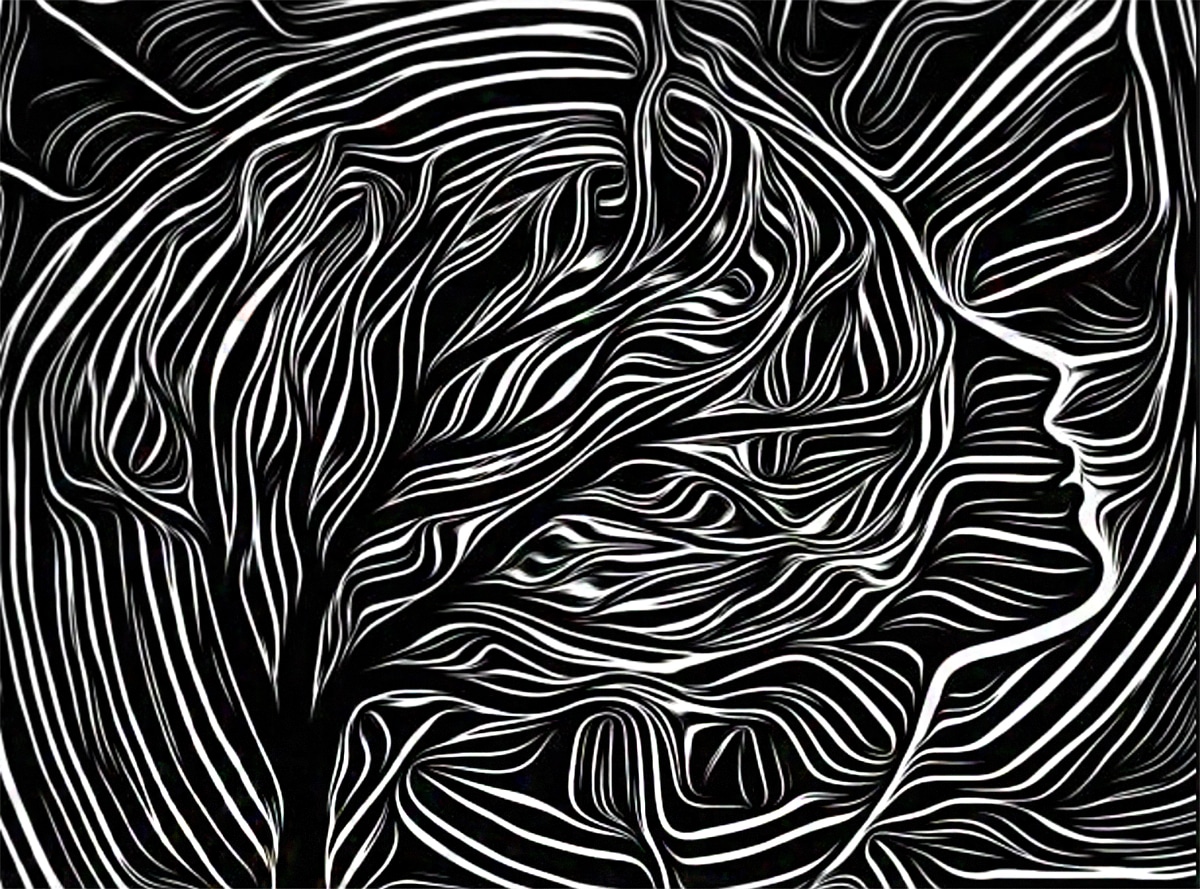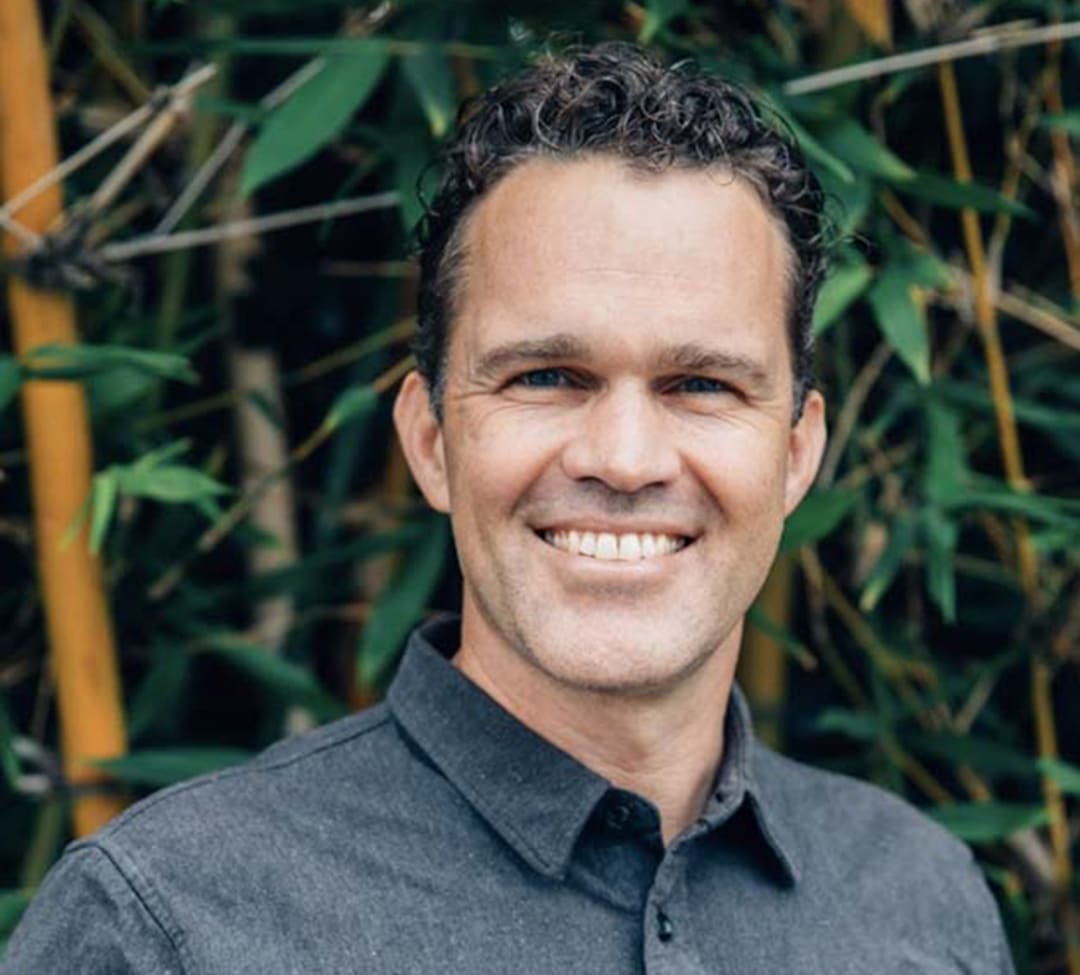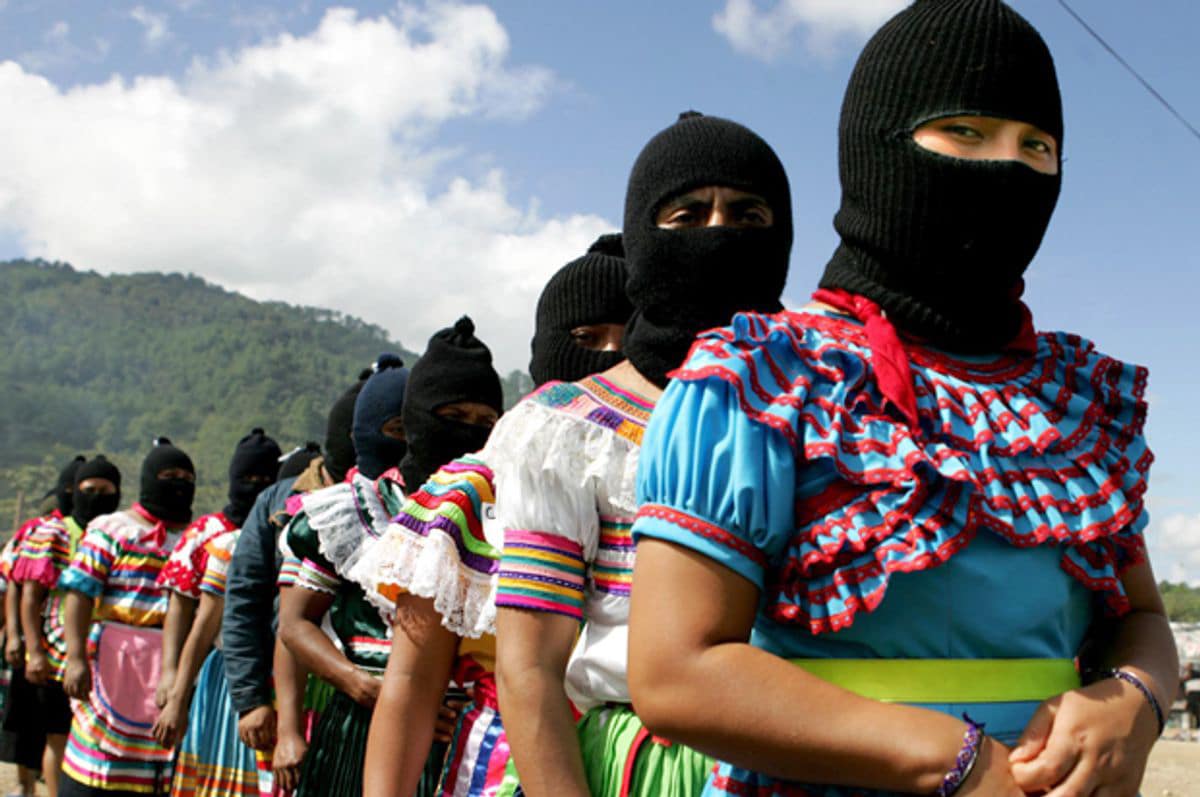

The Inner Light
by W.D. James | Jan 4, 2025
For whatever reason, I was recently drawn to pull a book off the shelf I had not read in ten or fifteen years and go back through it. It is Rufus Matthew Jones’ The World Within (1918). Jones was an early twentieth century Quaker scholar who focused on mysticism, especially that of the seventeenth and eighteenth centuries. I remember having found him helpful in explaining mysticism in general when I explored that subject years ago. He writes well and he expresses complex ideas understandably. Further, I didn’t find his Quakerism got in the way (that is my own bias—see below).
Along a completely different line of inquiry, but pretty much overlapping with my rereading of Jones, I picked up an old book on Gerrard Winstanley for free in an electronic version. It is Lewis H. Berens’ The Digger Movement in the Days of the Commonwealth; As Revealed in the Writings of Gerrard Winstanley, the Digger; Mystic and Rationalist, Communist and Social Reformer (1906). I was looking to understand Winstanley’s politics, but Berens roots those in his theology. I started looking for copies of Winstanley’s theological writings. I can find no book currently in print and available that contains them (the Cambridge collected works is technically not out of print but is indefinitely out of stock so each volume is going at over $100). I looked online; finally a friend found a pdf of one of his theological tracts. So, I ordered a hard copy of the book I had gotten for free as it at least contained a lot of quotes and I figured this might be the best I could do for now.

Berens’ dedication to his really fine survey of Winstanley reads: “Respectfully dedicated to the Society of Friends [ie, Quakers] (the Children of Light) to whom the world owes more than it yet recognises and whose fundamental doctrines the author has learned to love and admire whilst writing this book.” What?! My looking into seventeenth century English radicalism had brought me to another old Quaker book on mysticism? Seems that Berens had written the work as a contribution to the still ongoing historical debate as to how influential the thought of Winstanley was to the original formulation of Quaker ideas. I am not a Quaker. I am pretty sure I don’t want to be a Quaker. Nevertheless, somehow, two Quaker books written around the same time had fallen into my lap and I was finding them intriguing. Further, they conveyed a revelation to me. Honor is due to whom honor is due.
It is somewhat characteristic of our times for people to describe themselves as ‘spiritual, but not religious.’ I have often thought of myself as religious, but not very spiritual. I tend to approach religion intellectually and have no problem affirming or critiquing certain theological propositions or dogmas of various creeds. Spirituality, on the other hand, rather eludes me. Over three decades ago I walked into a Catholic church and wanted to talk about converting. I wanted to have a theological discussion. Sister Dorothy instead asked me how my prayer life was. Oh, well. I did go back for one group meeting. There were no other philosophers there, just a person who I deduced was probably a recovering drug addict and several others I did not expect to be able to have a theological discussion with. I did not return to that church. Yet, I knew something was wrong with my approach. I had no doubt that Sister Dorothy was more spiritual than me and a better person. Also, I knew that my intellectual snobbery toward the other people there was wrong. Nevertheless, that’s how it was.
Eventually, I came to believe my lack of ‘spirituality’ was an issue. My parents did not have this shortcoming. They essentially ended up becoming Pentecostals. I did not follow them in that. For whatever reason, when poking around in the two above mentioned books, I felt like I finally ‘got it’.’ Now, ‘getting it,’ in my case, is still a matter of intellectual comprehension. However, it also seemed like it shed light on my actual experiences. Hence, my talk of gaining a revelation from these long dead thinkers (God bless their souls). So, I have a bit of hope for myself in this regard. As an expression of gratitude, I have used the Quaker expression of this experience as the title of this essay.
So, if you’re a genuinely spiritual person, there probably isn’t much in what follows that will be of use to you—you already know it. If you’re religious but not very spiritual, then it is probably very relevant. If you are neither religious nor spiritual, you may as well keep reading and you can make fun of what I have to say (or else start to change your mind).

The essential insight
The microcosm and the macrocosm mirror one another.
I have probably encountered that idea a thousand times and have found it a rather arcane metaphysical statement that was quite exciting. I had not, apparently, understood its significance as a spiritual teaching.
I suppose I probably came across this wording of the issue via the Perennialists. Though arcane, I’ll tend to use this terminology here as I think it lends toward concision in the issues under consideration. Literally, these terms mean ‘little world’ and ‘big world.’ What this points to is the idea that there is an overarching order which establishes both Nature (big world) and the Soul (little world) and that, hence, there is a natural affinity or likeness between those two. The soul and the cosmos go together.
Winstanley stated “The world is mankind; and every particular man and woman is a perfect creation of himself, a perfect created world.” Jones pointed out that “What is true of the large outer world is true also – inevitably true – in the smaller inner world which the schoolmen used to call the microcosm, that is, in the soul of man.” What they are pointing to is that the marks of a larger creative force are equally present in the world (which we can see by looking outward) and in our own souls (which we can approach through introspection).
In various traditions, the force accounting for this correlation is called by different names: Nature, Tao, Brahmin, God, Natural Law, Logos, Reason, Spirit. Winstanley said he preferred to call God ‘Reason’ and would write: “For it is Reason that made all things; and it is Reason that governs the whole Creation…. For this Spirit of Reason is not without a man, but within every man… he dwells in every creature… Reason is that living Power of Light that is in all things.” In discussing what is meant by ‘faith,’ Jones averred “We must live in the belief that the world outside the mind and inside the mind make together one whole and coherent world.”
This much I already understood. On this sort of mystical vision, God, or the Logos, or whatever, creates the cosmos. We humans are the part of the cosmos that gets to more or less consciously (though subconsciously as well, I think) understand the rest of the cosmos and this is made possible by the possession of understanding which shares to some degree in the ultimate understanding that creates the cosmos. Hence, we ‘are made in the image of God’ as Christian, Jews and Muslims would have it, or ‘you are that (ie, God, Brahmin)’ as the Hindus would have it. That’s cool. Nice metaphysics.
What hadn’t really struck me before is that we subjectively experience the operations of the microcosm (our soul). We can sense, can feel it, when our vision starts to align with the implicate order of things. The metaphysical picture is one of great unity and harmony. In fact, historically, the mystics have had trouble keeping a distinction between their souls and God (which they often refer to as the beloved and the lover), or the Cosmos, because the love born by their vision (usually described as a descending love from God and an ascending love from the soul; a ladder with messengers ascending and descending) is so profound that they experience unity with the divine. They also have a lot of trouble putting any of this into words.

What became clear to me was that this inner dynamic of attunement with the world and how to sense it. For present purposes, it is good that as far as mystical experiences go, mine does not even register, so I feel I can describe the basic ideas pretty well. What I got a sense of was what people refer to as ‘personal spirituality’ or ‘religious experience.’ Jones speaks of this as “the personal meeting of the soul with God.” Quoting a myth from Persia, the Spirit says to the individual soul “I am your true self, your best self, your real self. I am the image of your ideals, your strivings, your resolves, your determined purposes. I am you. Henceforth we merge together into one harmonious life.”
I’m sure this is overly simplified, but it seems to be that what is meant is that as our vision is able to perceive the fundamental unity of all things, that is the Spirit within us aligning with the Spirit in Nature as a whole. We can subjectively experience the cosmos working itself toward harmony!
How do we know that is happening? The mystics have always emphasized, and I’ve always been leery of, the overcoming of the Ego; the force within the soul that wants to see the whole cosmos only in its light not see itself in the light of the cosmos. The Ego asks ‘what use may I make of that?’ ‘How can that person serve me?’ ‘How can I grasp and hang on to as much as possible, remaking it in my image?’ Jones teaches: “There is no finding without losing; there is no getting without giving; there is no living without dying.” I think all he means is that, as we develop spiritually, the Ego subsides and the Spirit increases. Winstanley expresses it thus: “The Spirit of Reason… the Maker and Ruler of all things, is that spiritual power that guides all men’s reasoning in right order, and to a right end… and knite [sic] every creature together into a oneness, making every creature to be an upholder of his fellows; and so everyone is an assistant to preserve the whole. And the nearer man’s reasoning comes to this, the more spiritual they are…”. Within us the Spirit lives and the Ego lives. As the Ego dominates we are subject to what Blake called ‘single vision’ and I suppose are what Herbert Marcuse called “one-dimensional man”. To the extent that Spirit predominates we acquire an expanded vision which decenters our individual, alienated, being and allows us to see the wider unity.
I think this is actually tested by our experience of ideals. Jones calls an ideal “an unselfish and spiritual cause.” Imagine perfection in whatever sphere: social life, family life, nature, your own interior spiritual or psychological life. Don’t get hung up on being critical of ‘perfectionism.’ We all know what would seem good to us and what doesn’t. Is the good picture of this thing characterized by discord, conflict, anguish, strife, etc…? Of course not. It is characterized by harmony. In fact, that is what makes the ideal, ideal. Isn’t that curious? When we think of an ideal we don’t think of the world blowing up, of us cheating someone, of ripping up a bunch of nature to make it into stuff. The ideal is always an image of harmony, order, and unity. That doesn’t mean we can just go create the ideal. It does mean though that something inside us, when we let ourselves dream, already understands the spiritual vision, no matter how ‘secular’ we might think ourselves to be. We can affirm unity, mutuality, harmony. I do not believe we can consistently affirm strife, exploitation, and violent chaos as ends to be sought. I don’t think we would honestly ever say: ‘I just have too much peace,’ or ‘we really need some mad raving around here.’ It does not take much for us to think: ‘ok, that’s too much conflict, that’s too much chaos, that’s too much pain.’ This tells us something important about ourselves, the world, and the relationship between them.
The thing is, we can experience ourselves having that experience. We know what it feels like to look with the eyes of the Spirit. And it essentially aligns with the experiences the mystics of various faiths have reported through the ages.

Community
We could tease out the implications of this vision in a number of spheres: nature, history, religion, etc…, but I would like to focus on the social aspect. I think the name of the ideal when applied to our social lives is ‘community.’ I would assert that this is what the Spirit (externally in the cosmos, working through nature) and internally (in our souls) is striving for. The Ego may be looking at how to use others, exploit them, or at least avoid being used and exploited by them. The Spirit is seeking unity. Some have spoken of ‘the beloved community’ as the realization of our spiritual aspirations in the social sphere.
But discord seems to perpetually get in the way of our realization of the ideal. Egoism, dishonesty, covetousness, jealousy, greed, oppression, domination, group interests over the interests of the whole. We can start to see how all of these can be seen as manifestations of the narrow-visioned Ego asserting itself. They are the opposite of Spirit. They are anti-ideal.
I’m crazy enough to say we should be idealists. Even (especially) our politics should be idealist. ‘Isn’t that just naïve?’ Well, not really.
The opposite tendencies have to be taken into account. They are persistent. Prudence demands we make provision for them. Yet, we must guard against affirming them. We must be stubborn in holding that they are non-ideal, non-spiritual, and ultimately not in accord with the destiny of human beings or the cosmos.
‘Well, of course, we want to be realists, but we would never call good evil’ some might say. Think about the economic system of modern capitalism as it was theorized by Adam Smith, David Ricardo, and that gang. The whole idea is that we should be rational, calculating, self-interested actors in the economy and we should be free to be such (that is what the free in ‘free market’ means: free of social, political, and moral restraint). The ‘market’ won’t work its magic if we don’t! Buy cheap, sell dear. How about buy fair, sell justly? How about don’t exploit another’s weakness for personal gain? How about don’t market harmful products to kids? How about we don’t define ourselves by our consumption? Smith promised that the ‘invisible hand’ would take all that admittedly selfish and dehumanizing activity (and he did explicitly worry about that) and through a demonic alchemy (my term, not his) turn it into social good. Nope. It does in fact produce a lot of stuff. It does not in fact produce good. Egoism, sharp dealing, treating people like tools, does not produce good, it produces and distributes stuff efficiently.
This is not meant as a personal attack on anyone. We are all capitalists to an extent because we all live and must gain our sustenance within a capitalist economy. My point is just that that economy was theorized and is structured around certain values and a view of the world and that view of the world is much more Ego-oriented than Spirit-oriented.
Modernity can be thought of, from a particular angle, as the affirmation of Ego and the Ego-orientation. Mine, mine, mine. Use, use, use.
Think of any totalitarian political system. ‘Well, realistically people are a bunch of egoistic rabble, and some of us (who are egoistic, but not rabble) have to keep them in line. It’s for their own good.’ No, it’s to impose a desired order of domination and exploitation. It is true that as the flawed beings we are, we mess up a good deal and now and then someone has to whack us on the shoulder and say, ‘cut it out’ and we probably know they’re right as soon as they do it. That is not the ideal though. That is not the goal. That is not the good. Politically, I don’t think we’re going to get to the ideal utopia. I think we can get a good bit closer though. And I won’t call the anti-ideal the true good and say we should go about creating not community but Leviathan, the Gulag, the competition of all against all, the Camp, the Whatever They Come Up With Next. Those are not the goal, and we cannot consistently affirm they are.
Systems that absolutize and depend upon the flaws are not good systems. We have to deal with the flaws, but the goal is always what the Spirit points toward, not the reification of evil.

The ethic of the Spirit
Viewing the world from this perspective of unity, I think a few key values stand out as well-rooted in the ontological reality. The first and foremost is love. By that I basically mean universal benevolence; as much as possible, willing the good of each thing, each person (including our own good, rightly understood), and of the whole. Jones writes of “a living God…whose will for a good world is the deepest reality of our universe.”
I think that also immediately entails two other values or moral commitments. Negatively, it implies a stance of, and working toward, non-domination (freedom). It is not our task to dominate anyone or anything; to reduce them to mere means for our individual or collective purposes. That would negate their own natures and violate the moral commitment of universal benevolence in one direction.
On the other hand, more positively, we owe to each person culture, cultivation. Jones asserts that “Self-enlargement and self-giving are the two indissoluble traits of a good life.” The fruits – material, spiritual, cultural (in the more narrow sense), aesthetic, mythic, and social – of our lives together should be nourished and passed down to all as a common treasury. Freedom is of little value unless there exists the humane context of a vibrant human community within which to exercise it. To fail to seek to provide that communal setting fails universal benevolence in the other direction.
Such, anyway, are the thoughts generated by a couple of old Quakers.







0 Comments